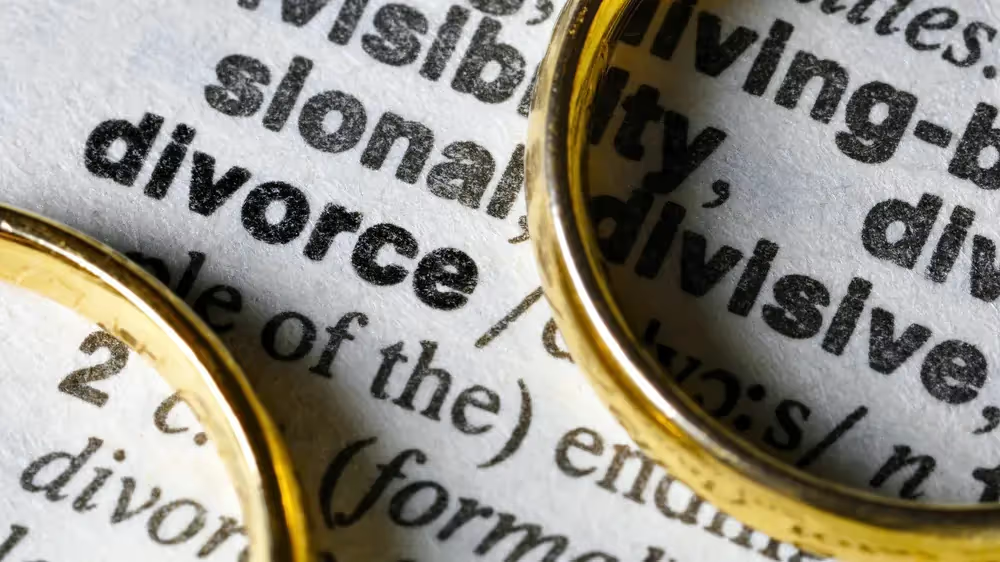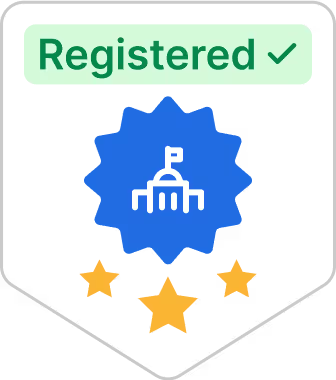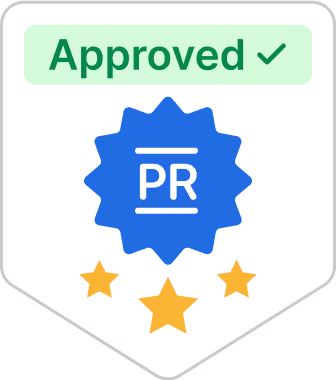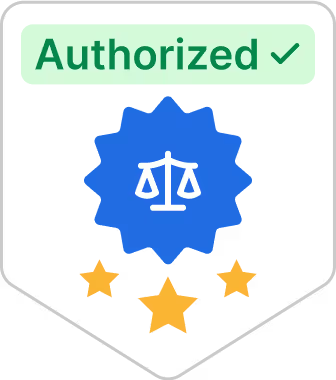How to get a certified copy of a birth certificate
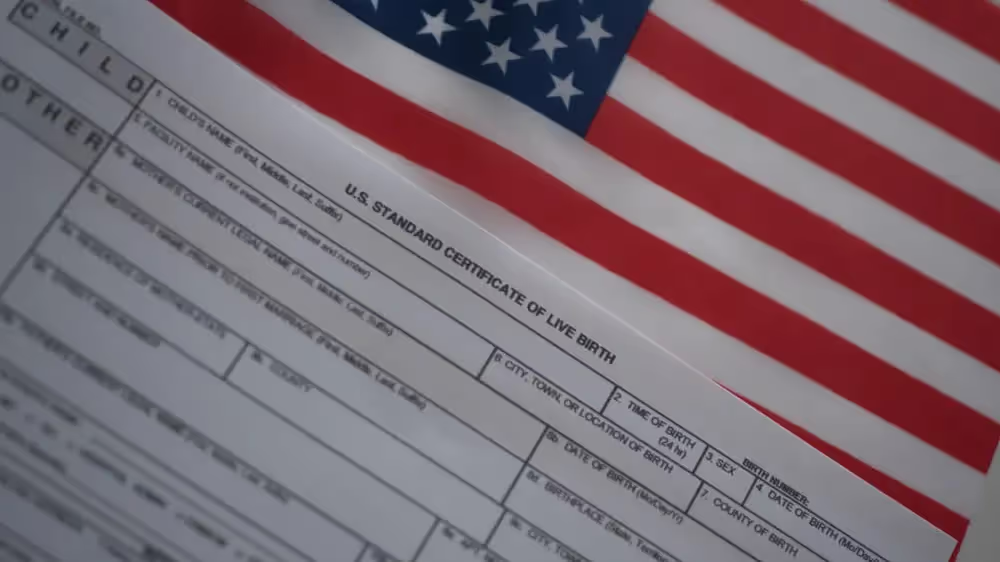
If you’re a United States citizen, your birth certificate is one of the most important identifying documents you’ll own—at least, at first. The vital record is usually issued at birth and acts as verification for obtaining other essential identifiers, such as a social security card replacement, driver’s license, or passport.
Besides proving your citizenship by indicating your birthplace, a birth certificate certifies the circumstances surrounding your birth. It verifies your age by establishing the date and time you were born and provides critical information about your birth parents, including their names, birthplaces, and ages at the time you were born.
You may need a birth certificate to:
- Verify employment eligibility
- Enroll in school
- Obtain a passport
- Get a driver’s license
- Get married
- Join the military
- Apply for government assistance
- Claim insurance benefits
- Claim a pension
If you’re looking to order a copy, we have you covered. It’s our mission to help individuals change, order, and replace vital records, including providing detailed information about the processes. Here’s how to get a certified copy of a birth certificate.
Original vs. Certified Copy of a Birth Certificate
First things first: What’s the difference between an original and a certified copy of a birth certificate? An original birth certificate is created at the time of birth. Most often, it’s initiated in a hospital setting, then filed with the vital records office. Birth certificates are required records by state law, constituting an official record of a person’s birth.
A certified copy, on the other hand, is a secondary copy of the original document. A state registrar will emboss, impress, or otherwise seal and sign the record to certify that it’s a true copy with correct information. Even though it’s not the original, an authorized certified copy is generally accepted as proof of citizenship, as well as in any other scenario that you’d need to show a birth certificate.
How can I get a copy of My Birth Certificate?
Now that you know the difference between an original and a birth certificate copy, you might be wondering, How can I get a copy of my birth certificate? Here’s a breakdown of the general process.
Contacting your birth state’s vital records office
Since the federal government doesn’t manage or issue birth certificates, the first step is to contact the vital records office in the state or U.S. territory where you were born. How do you get a birth certificate copy from your birth state? The instructions for obtaining a certified copy vary by location, but you’ll likely have the option to apply online or mail in your request.
The Centers for Disease Control (CDC) is an excellent resource for determining the next steps. In addition to national health statistics, the government agency has a directory that links out to all the states and territories.
Click on your birthplace to find information about the application process, the appropriate fee for requesting a certified copy of a birth certificate, and how to submit your documents. This website also provides information about getting an authorized copy of a death certificate, fetal death record, marriage certificate, divorce records, and delayed records in each state.
Required information
When requesting a certified copy of your birth certificate, you’ll need to provide some personal information. Having this information ready can help make the process quicker and smoother.
Required information usually includes the registrant’s:
- Full name at birth
- Date of birth
- Sex
- Birthplace (city, county, and hospital if applicable)
- Parents’ full names
- Mother’s maiden name
- Parents’ birthplaces
- Social security number
Application request forms vary from state to state, but most will require these personal details. You’ll also need to provide a reason for your request.
Reason for request
When applying for a copy of your birth certificate, you’ll have to note a reason for your request. If you’re submitting an application online, you might be able to select from provided reasons or asked to enter an explanation.
An acceptable reason for requesting a certified birth certificate copy could be to:
- Renew or obtain another form of identification
- Prove employment authorization
- Enroll in school
- Get a marriage license
- Join the armed forces
- Provide documentation for court proceedings
- Secure insurance benefits
- Get welfare assistance, veteran’s benefits, or other government benefits
- Replace a lost, stolen, or damaged birth certificate (Read our guide on “what to do if I lost my birth certificate” for more detailed instructions)
You can also request a delayed certificate, which is different from a certified copy. When an original birth certificate isn’t filed within the first year of birth, the individual (or a close relative) will have to order a delayed birth record. Additionally, you can get an heirloom birth certificate or an informational copy, which are non-legal documents obtained for sentimental or other unofficial purposes.
Identity verification
You’ll need to provide some verifying information in order for your application to be processed. This helps ensure the security of the request and prevents unauthorized people from obtaining vital records.
So, what do you need to get a birth certificate? You may be asked to upload or mail in a copy of your driver’s license, state-issued photo ID, passport, or social security card. If you don’t have these forms of identification, some states allow you to provide two or three alternative identifying documents.
Alternative accepted identity verification records may include:
- Work ID card
- School ID card
- Military ID
- Bank statements
- Property records
- Notarized letter from a birth parent
- Sworn statement of identity
If these alternate forms of verifying documents are allowed, it will be noted on your application for a certified birth certificate copy.
Cost of getting a certified Birth Certificate
The cost of getting a certified copy of a birth certificate varies from state to state. However, the price is typically around $25.
If you’re submitting an online order request, you’ll fill out the application form, upload the necessary documents, and pay the certificate fee via debit or credit card. If you’re mailing in your request, you can usually pay with a check or money order.
Getting an expedited copy
If you need a copy of your birth certificate in a quick time frame, you can request expedited processing and shipping. Expedited birth certificates might be issued in as little as a week, though this varies. Also, you can expect to pay an additional expedite fee for a faster turnaround.
Getting a certified copy for someone else
If you’re requesting a copy of someone else’s birth certificate, such as your child or another close relative, you’ll need to verify yourself as a qualified applicant. The rules vary among states, but you can usually order a certified record if you’re the registrant’s parent, legal guardian, spouse, sibling, child, grandparent, or grandchild. In some states, current domestic partners and stepparents may be able to request vital records.
Legal representatives can also order certified copies of birth certificates for their clients. However, if you’re not an immediate relative or family member, you’ll have to provide documentation to legitimize your request. This could include a court order, affidavit, a copy of Power of Attorney (PoA), or records proving you’re an executor.
We’re here to help you obtain vital records
We are a go-to resource for anyone looking to obtain vital records. Using intelligent, cloud-based technology, the process of applying for a birth certificate has never been easier. With us, you can take care of everything from the comfort of your own home. Get in touch with us to learn more about our convenient online platform.
Please note that we are an independent, third-party servicer with no affiliation with the Social Security Administration (SSA).
Sources:
- USA.gov. Replace Your Vital Records. https://www.usa.gov/replace-vital-documents
- Centers of Disease Control and Prevention. Where to Write for Vital Records. https://www.cdc.gov/nchs/w2w/index.html
- Child Welfare Information Gateway. Access to Adoption Records. https://www.childwelfare.gov/pubPDFs/infoaccessap.pdf







